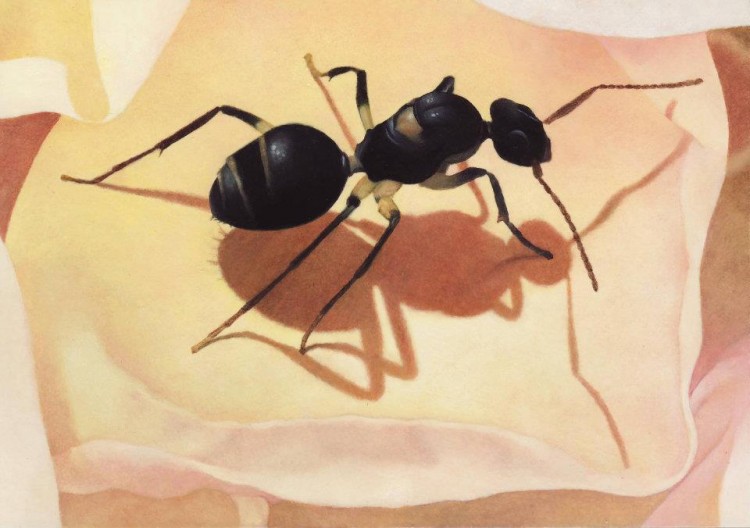I Wasn't Diagnosed With Asperger's Syndrome Until My Late 20s
Once I saw a girl’s nose from across a crowded public place. It looked exactly like the nose of a girl with whom I had fallen in love. But not until I had woven my way through the intervening groups of people, and passed this nose, and heard my name, did I realize that the girl herself was attached to it.
That’s my life in a nutshell.
I’d never heard of Asperger’s syndrome until I was midway through a doctoral program in mathematics. I’d hit a glass ceiling in my ascent of the academic ladder. Taking notes and passing exams was no longer enough. I had to learn through human interaction now, and it was proving too much. Then one day I read an account of an autistic mathematician, and, like a flash of lightning, it illuminated the landscape of my life.
Everything made sense. I knew why I had spent my childhood stacking things and eating Froot Loops in spectral order; why certain sights, sounds and textures wrought agony (or ecstasy!) in my overtaxed brain; why I had devoted hours to memorizing genealogies and taxonomies; why, when I painted a landscape, I proceeded one blade of grass at a time; why I couldn’t look people in the eyes (which, like the sun, can blind by their excess of light); why navigating a casual conversation was like solving a Rubik’s Cube while riding a unicycle; why simple directions and everyday interactions led me down terrifying labyrinths full of dead ends and pitfalls, whereas abstract computations and photorealistic drawings came so easy.
I wasn’t lazy, or devious, or shifty; I wasn’t a “space case,” or “stupid,” or sleep-deprived; neither social anxiety nor depression were my real problems. I was autistic. I had a diagnosis. That was power. You know the proverb: “Never explain yourself. Your friends don’t need it, and your enemies won’t believe you, anyway.” Well, a diagnosis is good for the hordes of humanity in between.
Sometimes people are taken aback by the late date of my diagnosis. Wouldn’t such a thing have come up sooner? But it did come up, I want to say. How could you not have noticed? I do all right in certain settings, yes. But the threat of a situation outside my skill set looms ever before me. And what I have a hard time with might surprise you. My life is a maze with invisible walls.
Having a diagnosis isn’t a passport to being “normal,” whatever that means. Now that I know why I’m doing all the strange things I do, can’t I just stop doing them? No, I’ve discovered, I can’t. I mean, I can’t stop doing those things and at the same time be what I need to be. That’s the thing. You might be able to do anything you want in life, but you can’t do everything you want.
So when I take my children to a school festival (the nose girl and I are happily married now), the citizens of our small town are going to see me wandering around reading “The Tragic Sense of Life” or examining insects up close while not saying a word to anyone and doing my best to hide from the sensory assault of my surroundings. Is this eccentric behavior? I suppose so. Am I aware of it? Generally yes, though sometimes, even now, no. Am I going to persist in it? Yes, because it’s who I am. I have one life to live. I’m not going to waste it trying to torture myself into an impossible position.
All real living is meeting, as the Jewish philosopher Martin Buber said. What a world is contained in those words! I’ve read that the autistic mind is blind to the inner workings of others. The very word means “alone.” And, as an adult, I have been so very alone at times, an island unto myself. But lately I’ve started to realize that we’re all more or less isolated in ourselves. I may just be more aware of it than others. And, with the self-understanding my diagnosis has given me, I’ve begun building bridges to the outside world. Often enough they go unnoticed or fall apart, thanks to my inexpert construction. But sometimes, miraculously, they make contact.
My life may never look like what you think it ought to. I will go on pursuing my interests, and painting, and writing sword-and-sorcery tales, and teaching mathematics, and playing with my kids, and acting as though it’s all of the utmost importance. If you feel the need to rationalize what I do, that’s great. Just don’t tell me about it. I don’t need it. I’m fine with what I am.

Follow this journey on Alone With Alone.
The Mighty is asking the following: Were you diagnosed with your disease, disability and/or mental illness as an adult? Tell us about the moment you finally got your diagnosis. If you’d like to participate, please send a blog post to community@themighty.com. Please include a photo for the piece, a photo of yourself and 1-2 sentence bio. Check out our Submit a Story page for more about our submission guidelines.
